How to Afford Long-Term World Travel pt 9 –
Minimizing Costs on Food
Eating is a necessary daily travel expense. It’s one that travelers have a lot of control over. You can choose where you eat, what you eat, how often and how much you eat. Depending on your choices, eating can range from extremely expensive to very cheap.
If you’re traveling on a budget, you can considerably reduce your overall travel expenses by eating cheaply every day. In most countries of the world that’s very easy to do simply by following a few basic guidelines.
Fortunately, eating cheaply does not mean you have to skimp on meals, go hungry or eat an unhealthy diet. On the contrary, I’ve been eating healthy, inexpensive foods all over the world throughout my 14 years of world travels.
How much does it cost me? Generally, I’ve been eating for $5-8 US per day, which is $250-240 US per month. I eat 4-5 full meals per day, lots of fresh fruit and never go hungry or thirsty.
How do I eat so cheaply? Put simply, I eat local foods at local shops & street stalls, avoid tourist restaurants, skip western meals and fast food, minimize canned/bottled drinks and drink a lot of water.
If you’re traveling on a budget, follow my guidelines to keep your travel budget low while still eating heaps of healthy, delicious food.
Don’t eat at tourist restaurants or guest house / hotel restaurants
Another way to put this is: Eat where the locals do, not where the tourists do
I’m constantly astounded to see huge numbers of budget travelers eating at their guest house restaurants and nearby ‘tourist restaurants’. In fact, I don’t get that at all. Why are they eating there?
First of all, local foods served at such places are a poor imitation of the real thing and cost double or triple the price at real local restaurants, which are usually located right down the street.
Secondly, western dishes served at those places are mediocre, at best, and cost much more then local food. After all, western dishes are basically ‘imported’, considered ‘gourmet’ and often contain many expensive imported ingredients like cheese, bread…
On top of poor quality food and expensive price tags, those restaurants are generally really lacking in atmosphere. They’re full of other western tourists who are collectively missing out experiencing the real country.
Eating at local shops is much better anyhow
Why not eat at real local shops, restaurants and street stalls? Places where locals eat, not places crammed with western tourists. You’ll be sure to get the country’s real cuisines. You’ll be in a real local restaurant, not a place built specifically for tourists. And you’ll be surrounded by & interacting with local people. Now that’s traveling! That’s getting into the culture.
And you’ll be eating at a fraction of the prices charged at bland, ho hum tourist and guest house restaurants.
Don’t eat western food in non-western countries
If you want to eat western food in non-western countries, it’s going to cost you a lot more than eating local dishes.
I’m always surprised and befuddled to see western travelers eating western food instead of the country’s cuisines. What’s the point of eating the same old western foods you eat back home? Boring! Not only that but western foods are much more expensive than any country’s local meals.
From my perspective, if you’re traveling through a new country but still eating the same foods you do back home, then you’re really missing out on a lot of good food, interesting experiences and you’re not really digging into the country.
Stick to local meals. Not only is it fun, interesting and delicious, but it’s much less expensive. You’ll chop your food budget way down because in most countries of the world, this is the most inexpensive way to eat.
Skip Fast Food Chains
In expensive western countries, fast food chains like McDonald’s and KFC might be a relatively inexpensive way to eat.
But in non-western countries, meals at international fast food chains are considerably more expensive than the local restaurants. After all, fast foods are imported, they are brand names and they are trendy. All that adds up to expensive meals.
Besides that, fast food is really bad for your health. In most countries of the world, any local dish is going to be healthier than McDonald’s or KFC!
Cut out (canned) drinks like juices, sodas and teas
Drinking several canned or bottled drinks per day will considerably increase your food budget. Stop drinking sodas, juices and canned teas. Instead, drink water as much as possible . It’s healthier, has fewer calories and will help minimize your food budget considerably
But don’t buy bottled water at restaurants, where it’s nearly as expensive as other drinks. Carry your own water and drink that.
If you want something besides water on occasion, local drinks served in a glass are usually much cheaper than canned & bottled beverages.
You can use various tactics to also minimize costs of drinking water. In fact, there are so many ways to minimize the costs of drinking water that I’ll devote an entire post to it. Coming soon.
How to Eat Cheap in Western Countries
Having said all that, I must now point out that the tactics for minimizing food costs is considerably different in expensive western countries like the USA, UK, Australia and European countries.
In those nations, eating local cuisines at restaurants is usually quite expensive. Instead, it’s much better to skip eating out as much as possible. The cheapest way to eat in those countries is to buy groceries and cook for yourself.
If you’re traveling on a budget, chances are you’ll be staying at youth hostels, visiting friends & acquaintances, camping or finding free accommodation via Couch Surfing, or House Sitting assignments. Hotels are just too expensive for budget travelers.
That means most places you’ll be staying at as a budget traveler will have kitchens.
I’ve done this in the USA, Australia, UK and Spain. You’d be surprised how inexpensive it is eating very high-quality fresh produce, meats, baked goods and dairy products by shopping and cooking for yourself. There’s not even any reason to skimp on healthy food.
Here are some concrete examples:
In the USA in 2011, by buying groceries and cooking for myself, I was consistently able to eat for about $270 US per month, which is under $40 per week or about $9 per day. In the USA!
I ate as much and as often as I needed – about 4 times per day. And I always bought high quality foods, including salmon, lamb, steaks, hamburger, quality breads, pastas, yogurts, fruits & vegetables.
In England in 2008, I was able to eat for under 10 GBP per day (under 300 GBP per month) with a combination of buying groceries/cooking and eating at small ethnic restaurants, mostly Middle Eastern and Indian. In the UK, European countries and the USA, ‘ethnic’ restaurants like Indian, Vietnamese, Middle Eastern and Chinese are the cheapest restaurants. Much cheaper than the native foods.
Summary:
These are the tactics I’ve been using to travel the world since 1998. By eating almost exclusively at local restaurants & street stalls, I can consistently eat for about $150-250 US per month. In western countries I switch to grocery shopping and cooking for myself.
I minimize my budget further by drinking mainly water and cutting down on canned & bottled drinks. As it turns out, that’s healthier anyhow.
No matter where I travel, I eat lots of good quality, healthy food and never skimp on meals.
QUESTIONS:
Do you eat local foods when traveling abroad?
Why or why not?
Do you have any more tips on how to eat cheaply while traveling?
——————————————————————————————————————————————–
Be sure to check out the rest of this series How to Afford Long-Term World Travel
You might also find my ’10 Free Things to do in… ‘Series useful.
———————————————————————————————————————————————-

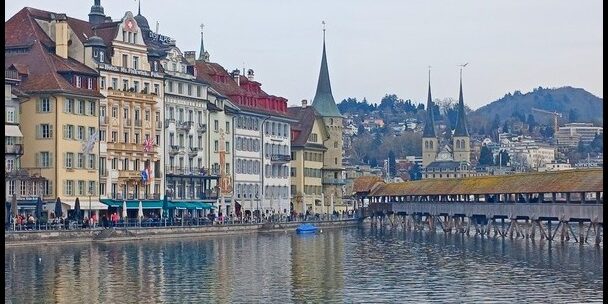
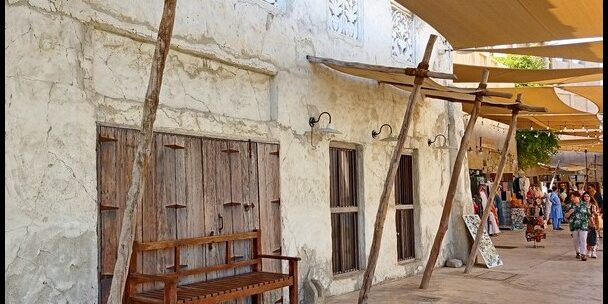
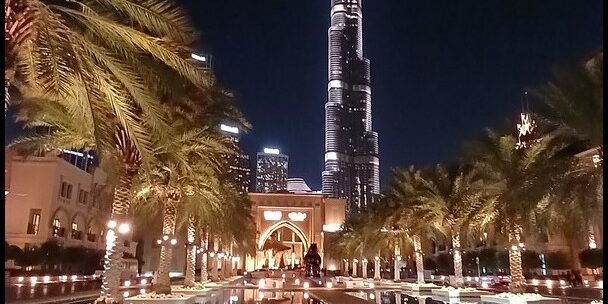
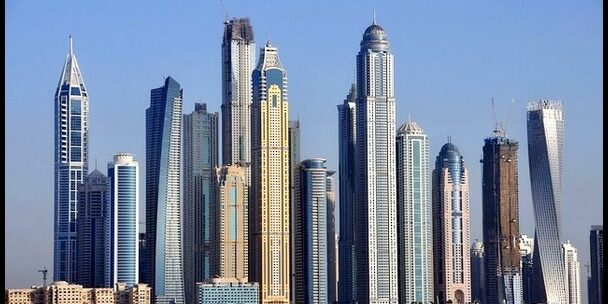


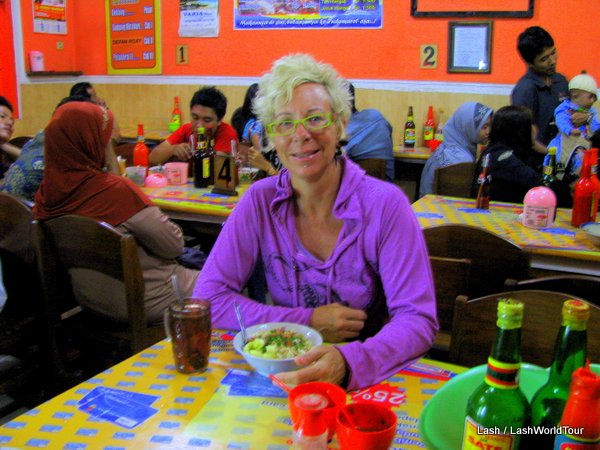
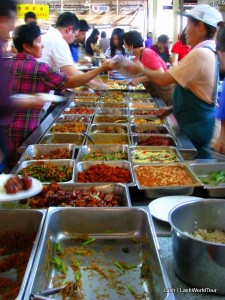
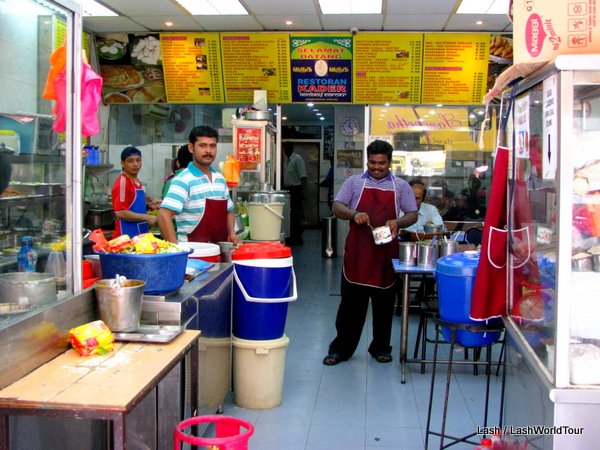
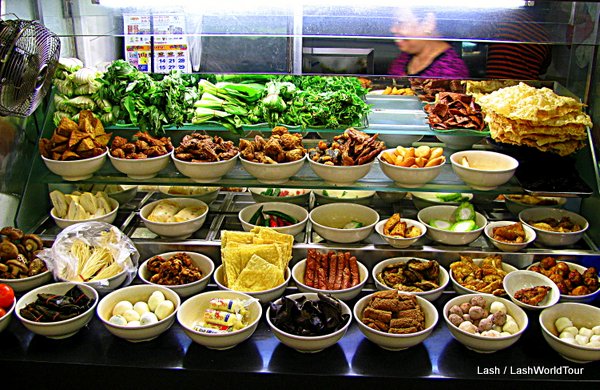
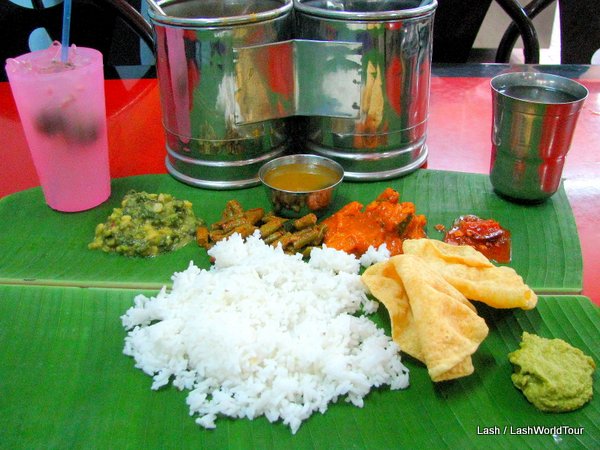
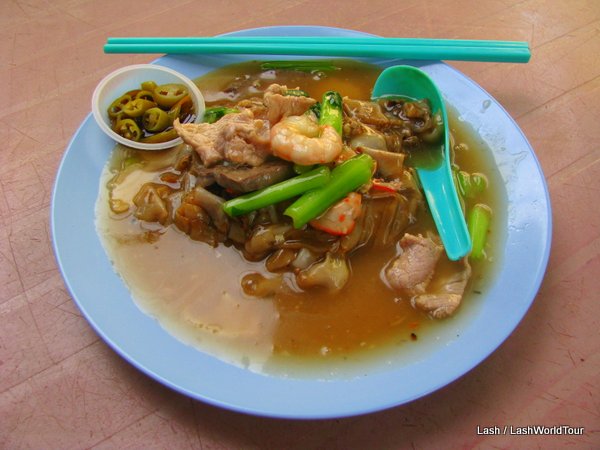
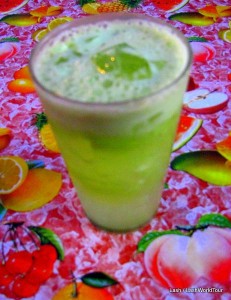
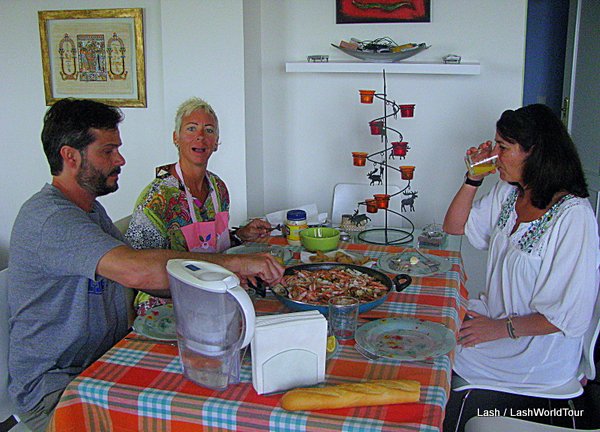
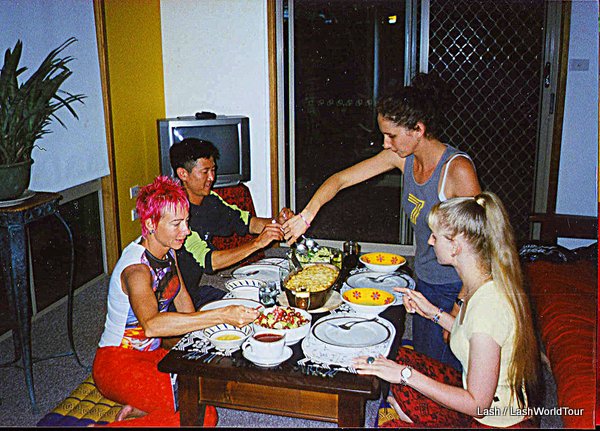
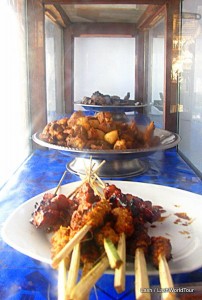

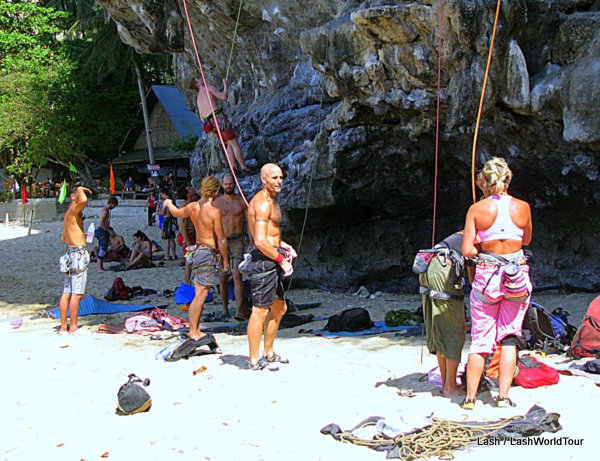

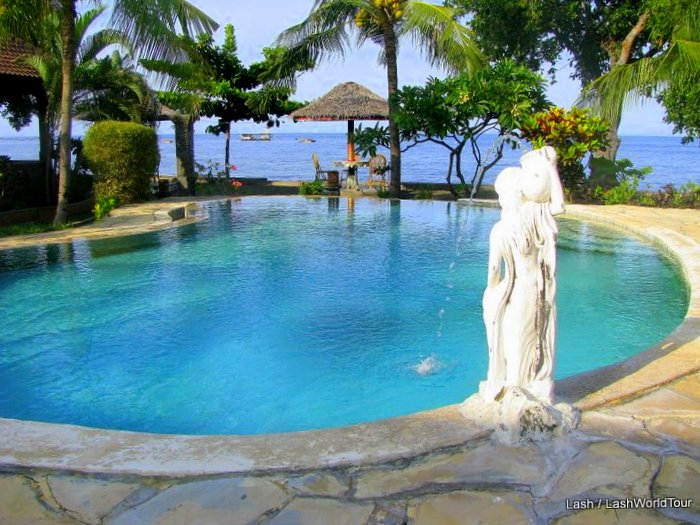

 Hi! I'm Lash, an American nomadic world traveler who's been traveling solo since 1998. I’m passionate about traveling the world nomadically and then sharing it all with you. I hope to inspire you to travel the world, to entertain you with tales from the road, and to help you reach your travel dreams. Welcome!
Hi! I'm Lash, an American nomadic world traveler who's been traveling solo since 1998. I’m passionate about traveling the world nomadically and then sharing it all with you. I hope to inspire you to travel the world, to entertain you with tales from the road, and to help you reach your travel dreams. Welcome! 




3 pings
Travel Bloggers » LashWorldTour
2015/02/06 at 11:10 am (UTC 8) Link to this comment
[…] pt 9 – Minimizing Costs on Food […]